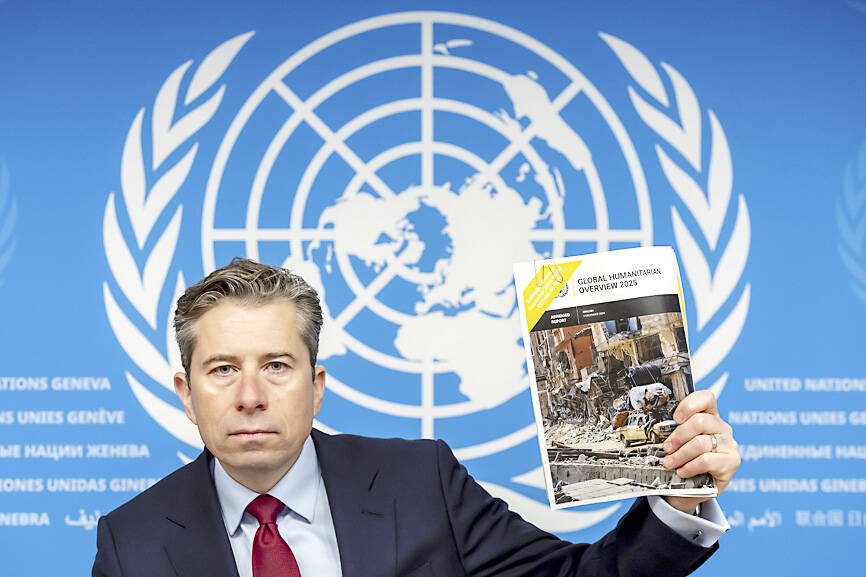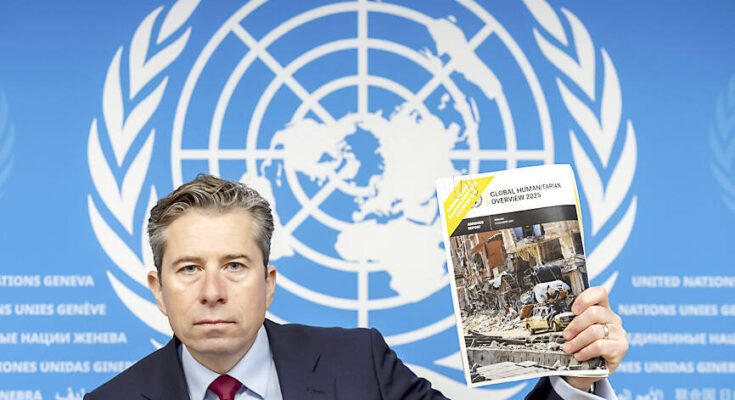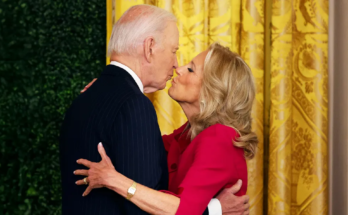WHITE HOUSE WATCH: The head of the UN aid agency said that the US was on his mind as some governments question what the UN does and are less supportive
AP, GENEVA, Switzerland
The new head of the UN humanitarian aid agency on Tuesday said that it would be “ruthless” when prioritizing how to spend money, a nod to challenges in fundraising for civilians in war zones such as Gaza, Sudan, Syria and Ukraine.
Tom Fletcher, a longtime British diplomat who took up the UN post last month, said that his agency is asking for less money next year than this year.
He said it wants to show “we will focus and target the resources we have,” even as crises grow more numerous, intense and long-lasting.

UN Humanitarian Affairs and Emergency Relief Coordinator undersecretary-general Tom Fletcher attends a news conference at the UN’s European headquarters in Geneva, Switzerland, on Tuesday.
Photo: AP
His agency, the UN Office for the Coordination of Humanitarian Affairs, yesterday issued its global appeal for next year, seeking US$47 billion to help 190 million people in 32 countries — although it estimates that 305 million worldwide need help.
“The world is on fire and this is how we put it out,” he told reporters a day earlier.
The office and many other aid groups, including the international Red Cross, have seen donations shrink in the past few years for trouble spots such as Syria, South Sudan, the Middle East and the Democratic Republic of the Congo (DR Congo), and newer ones like Ukraine and Sudan. Aid access has been difficult in some places, especially Sudan and Gaza.
The office’s appeal for US$50 billion for this year was only 43 percent fulfilled as of last month. One consequence of that shortfall was a 80 percent reduction in food aid for Syria, which has seen a sudden escalation in fighting in the past few days.
Such funds go to UN agencies and more than 1,500 partner organizations.
The biggest asks for next year are for Syria — a total of US$8.7 billion for needs within the country and for neighbors that have taken in Syrian refugees — as well as Sudan at a total of US$6 billion, the “Occupied Palestinian Territory” at US$4 billion, Ukraine at about US$3.3 billion and DR Congo at nearly US$3.2 billion.
Fletcher said that his office needs to be “ruthless” in choosing to reach people most in need.
“I choose that word carefully, because it’s a judgement call — that ruthlessness — about prioritizing where the funding goes and where we can have the greatest impact,” he said. “It’s a recognition that we have struggled in previous years to raise the money we need.”
In response to questions about how much US president-elect Donald Trump would spend on humanitarian aid, Fletcher said he expects to spend “a lot of time” in Washington over the next few months to talk with the new administration.
The US is the UN’s biggest single donor.
“America is very much on our minds at the moment,” he said, acknowledging some governments “will be more questioning of what the United Nations does and less ideologically supportive of this humanitarian effort” laid out in the new report.



